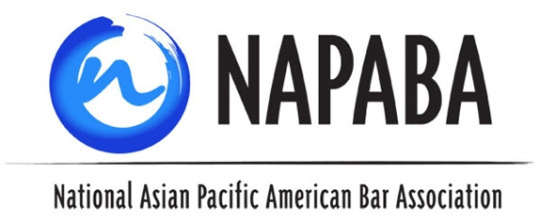
For Immediate Release
March 3, 2016
For More Information, Contact:
Brett Schuster, Communications Manager
202-775-9555; bschuster@napaba.org
Coalition of Bar Associations of Color Holds Annual Meeting
Meets with White House Officials and Congressional Representatives to
Address Issues Affecting Communities of Color
WASHINGTON — This week, the Coalition of Bar Associations of Color (CBAC) gathered in Washington, D.C., for its Annual Meeting. CBAC’s leaders discussed key issues affecting communities of color, including judicial vacancies, criminal justice reform, and immigration reform. This year’s Annual Meeting included visits with key executive branch officials and members of Congress. CBAC met with Department of Homeland Security Deputy Secretary Alejandro Moyorkas, Chief of Staff for the U.S. Citizenship and Immigration Services Juliet Choi, and high-level White House staffers from the White House Counsel’s Office, the White House Domestic Policy Council, and the White House Office of Public Engagement. CBAC also met with Senator Patrick Leahy, and with high-level staffers of Senators Chuck Grassley, Heidi Heitkamp, and Harry Reid. CBAC leaders also met with public engagement staff for the Republican National Committee.
“Given the priorities of CBAC, we urge the nomination and confirmation of diverse candidates for the judiciary over the next year,” said Linda Benally, president of NNABA. "NNABA was honored to host CBAC’s annual meeting convening the CBAC leadership to continue its work, with the White House and Congress to find solutions to issues of concern.”
“The strength of CBAC comes from working together to promote positive change for all communities, particularly in the realms of justice and inclusiveness,” said HNBA National President Robert T. Maldonado. “As attorneys of color, we are intimately aware of what a diverse judiciary, a fairer criminal justice system, and common-sense immigration reform would mean for our nation. The HNBA will continue to work with our CBAC partners to press Congress and the Obama Administration to make progress on these issues.”
“The annual meeting and lobby visits of the national bars of color continue to be a valuable part of our collective advocacy efforts on behalf of communities of color,” said Jin Y. Hwang, president of NAPABA. “For more than 24 years, CBAC has demonstrated the importance of national leaders in the legal profession speaking out together with a unified voice to champion issues such as criminal justice reform, voting rights, immigration, and diversity on the federal bench at all levels.”
“As President of the National Bar Association, I was pleased to participate in the meeting at the White House with the other presidents of the Coalition of the Bar Associations of Color,” said Benjamin Crump, president of NBA. He went on to say: “I advised the White House that the National Bar Association will continue its efforts to promote and pass criminal justice reform this year.”
CBAC was established in 1992 and is comprised of the Hispanic National Bar Association (HNBA), the National Asian Pacific American Bar Association (NAPABA), the National Bar Association (NBA), and the National Native American Bar Association (NNABA). CBAC meets annually every spring so that leaders from its member organizations can discuss issues of mutual concern and advocate in support of their shared interests. For more information contact:
HNBA Contact: Alba Cruz-Hacker (acruzhacker@hnba.com)
NAPABA Contact: Brett Schuster (bschuster@napaba.org)
NBA Contact: Lonita Baker (lonita.baker@gmail.com)
NNABA Contact: Linda Benally (ljdbenally@gmail.com)
CBAC partners:
The HNBA is an incorporated, not-for-profit, national membership organization that represents the interests of the more than 50,000 Hispanic attorneys, judges, law professors, legal assistants, and law students in the United States and its territories. From the days of its founding three decades ago, the HNBA has acted as a force for positive change within the legal profession. It does so by encouraging Latino students to choose a career in the law and by prompting their advancement within the profession once they graduate and start practicing. Through a combination of issue advocacy, programmatic activities, networking events and educational conferences, the HNBA has helped generations of lawyers succeed.
The National Asian Pacific American Bar Association (NAPABA) is the national association of Asian Pacific American (APA) attorneys, judges, law professors, and law students. NAPABA represents the interests of over 50,000 attorneys and over 75 national, state, and local bar associations. Its members include solo practitioners, large firm lawyers, corporate counsel, legal services and non-profit attorneys, and lawyers serving at all levels of government. NAPABA engages in legislative and policy advocacy, promotes APA political leadership and political appointments, and builds coalitions within the legal profession and the community at large. NAPABA also serves as a resource for government agencies, members of Congress, and public service organizations about APAs in the legal profession, civil rights, and diversity in the courts.
Founded in 1925, the NBA is the nation’s oldest and largest national network of minority attorneys and judges. It represents approximately 60,000 lawyers, judges, law professors and law students and has over 80 affiliate chapters throughout the United States and around the world. The organization seeks to advance the science of jurisprudence, preserve the independence of the judiciary and to uphold the honor and integrity of the legal profession. For additional information about the National Bar Association, visit www.nationalbar.org.
Founded in 1973, the NNABA serves as the national association for American Indian, Alaska Native, and Native Hawaiian attorneys, judges, law professors and law students. NNABA strives for justice and effective legal representation for all American indigenous peoples; fosters the development of Native American lawyers and judges; and addresses social, cultural and legal issues affecting American Indians, Alaska Natives, and Native Hawaiians.

